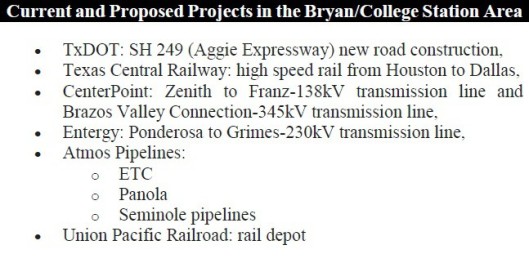He and the church have helped congregants through drug addictions and gang violence, establishing a youth center and food pantry as part of the church’s mission, but they may have encountered a problem they cannot overcome: the power of eminent domain.
Bishop Roy Lee Kossie has been preaching at Latter Day Deliverance Revival Church in Houston’s Fifth Ward for 50 years, starting his work in 1965 when the area had gained notoriety as one of the city’s most dangerous neighborhoods.
At that time, the Fifth Ward became known as the “Bloody Nickel.” But, decades before the spur of its neighborhood violence, locals simply called it the “Nickel.” The neighborhood had served as a hub for minority-owned businesses and development during an era of redlining and de facto segregation. Congressman Mickey Leland and Congresswoman Barbara Jordan are products of the Fifth Ward, both attending Phillis Wheatley High School on Lyons Avenue, one of the nation’s largest black schools before desegregation.
The neighborhood, once flourishing with the hustle-and-bustle of local businesses, began to change in the 60s, according to the Texas State Historical Association, when upwardly mobile residents moved out to seek broader opportunities that stemmed from integration. Some attribute the neighborhood’s economic and social fall to Highway 59’s exclusion of Lyons Avenue and Jensen Drive – two of the Fifth’s busiest streets at the time – as exits on the major roadway, according to Houston History Magazine.
“The decline was slow,” Patricia Pando wrote in the Houston History Magazine. “Businesses did not disappear overnight. Nevertheless, by the late 1960s, the Lyons Avenue and Jensen Drive intersection was all but abandoned except for the still booming nightclub activity.”
The area’s decline did not, however, scare Bishop Kossie away from his church on Lyons Avenue. The church worked to acquire property, including the lots of two neighboring nightclubs, for its ministry.
“People shot first and asked questions later,” he said in a news release from the Liberty Institute. “But, we love this community. This is where the Lord called us and this is where we want to stay.”
He and the church have helped congregants through drug addictions and gang violence, establishing a youth center and food pantry as part of the church’s mission, but they may have encountered a problem they cannot overcome: the power of eminent domain.
The Houston Housing Authority (“HHA”) has made offers to purchase three of the church’s properties and has threatened to use eminent domain if those offers are not accepted, according to a lawsuit filed August 3 by Latter Day Deliverance Revival Church (“Latter Day”) and Christian Fellowship Missionary Baptist Church (“Christian Fellowship”). Liberty Institute is representing the churches and stated that the HHA was also seeking property owned by Christian Fellowship, a church that has been in the neighborhood for nearly 40 years.
The two churches in Houston’s Fifth Ward assert that the HHA’s use of eminent domain for a redevelopment project infringes upon the churches’ right to practice religion freely as the entity is seeking to take an “undeveloped” plot that Latter Day currently uses for parking and for its outdoor ministry in addition to other properties owned by the churches.
The HHA was seeking a total of four parcels from the two churches, three from Latter Day and one from Christian Fellowship, according to the Houston Chronicle. Christian Fellowship resides on one of those parcels, and the HHA planned to demolish the church to build a library, according to a lawyer for the Liberty Institute quoted in the Houston Chronicle Aug. 4.
The HHA initiated a redevelopment project in the Houston neighborhood in partnership with the Fifth Ward Community Redevelopment Corporation (“FWCRC”), an organization dedicated to revitalizing the historic Houston neighborhood through various development projects. The project, however, has come under public scrutiny since the lawsuit was filed. The HHA and the FWCRC altered their initial plan in response to the criticism, and their new plan would allow Pastor Quinton Smith to continue his 20-year career at Christian Fellowship.
“Toward ensuring [Pastor Smith’s] congregation continues its important presence in this community, I have asked our authority’s president, Tory Gunsolley, to work with our consultants to create an alternate development plan that does not include the property of First Christian Fellowship Missionary Baptist Church,” Chairman of the Houston Housing Authority Board of Commissioners Lance Gilliam said. “Unfortunately, that alternate plan will not allow us to include a new library. We recognize, however, that this sacrifice is balanced by the very real impact Pastor Smith and his congregation will have on the lives of existing and future residents of the Fifth Ward.”
Despite this alteration, the HHA and the FWCRC still plan to acquire Latter Day’s property to build a private health clinic.
“Although I applaud Bishop Kossie’s and his congregation’s impact on the quality of life in the Fifth Ward, I cannot provide him any comfort regarding our disagreement,” Gusnolley said.
The court has granted the churches a temporary restraining order to keep the housing authority off their properties but has not yet decided on whether the potential HHA taking violates the Texas Religious Freedom Restoration Act.
The HHA and the FWCRC may have noble intentions for the Fifth Ward as the FWCRC has a history of involvement in the community that includes the building of more than 300 homes in an effort to revitalize the Nickel. But, if we have learned anything since Kelo, it is that economic growth and development should not be cause enough to infringe upon someone’s constitutionally-protected property rights. Latter Day purchased its parcels of land with a vision in mind, and the HHA should not come between the church and that vision without having a compelling reason vested in the public interest to do so.
Co-authored by Justin Hodge and Ayla Syed.
If you have any questions about this blog, please feel free to contact Justin Hodge (jhodge@jmehlaw.com).
Like this:
Like Loading...





